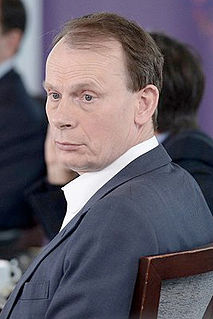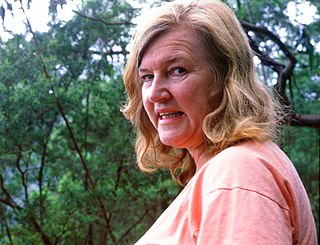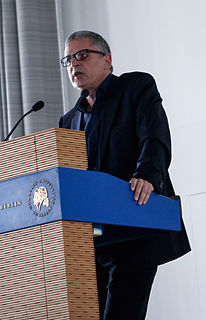A Quote by Thomas Jane
I think what makes us human - is our interconnectedness among people. It's our ability to form and maintain relationships. It's the barometer by which we call ourselves human.
Related Quotes
?Reading good literature is an experience of pleasure...but it is also an experience of learning what and how we are, in our human integrity and our human imperfection, with our actions, our dreams, and our ghosts, alone and in relationships that link us to others, in our public image and in the secret recesses of our consciousness.
One of the sayings in our country is Ubuntu - the essence of being human. Ubuntu speaks particularly about the fact that you can't exist as a human being in isolation. It speaks about our interconnectedness. You can't be human all by yourself, and when you have this quality - Ubuntu - you are known for your generosity. We think of ourselves far too frequently as just individuals, separated from one another, whereas you are connected and what you do affects the whole World. When you do well, it spreads out; it is for the whole of humanity.
To the extent that we hyper-separate ourselves from nature and reduce it conceptually in order to justify domination, we not only lose the ability to empathise and to see the non-human sphere in ethical terms, but also get a false sense of our own character and location that includes an illusory sense of autonomy. The failure to see the non-human domain in the richer terms appropriate to ethics licences supposedly ‘purely instrumental’ relationships that distort our perceptions and enframings, impoverish our relations and make us insensitive to dependencies and interconnections
Whether the mask is labeled fascism, democracy, or dictatorship of the proletariat, our great adversary remains the apparatus—the bureaucracy, the police, the military. Not the one facing us across the frontier of the battle lines, which is not so much our enemy as our brothers' enemy, but the one that calls itself our protector and makes us its slaves. No matter what the circumstances, the worst betrayal will always be to subordinate ourselves to this apparatus and to trample underfoot, in its service, all human values in ourselves and in others.
The greatest human virtue bears no proportion to human vanity. We always think ourselves better than we are, and are generally desirous that others should think us still better than we think ourselves. To praise us for actions or dispositions which deserve praise is not to confer a benefit, but to pay a tribute. We have always pretensions to fame which, in our own hearts, we know to be disputable, and which we are desirous to strengthen by a new suffrage; we have always hopes which we suspect to be fallacious, and of which we eagerly snatch at every confirmation.
We see ourselves in other people’s eyes. It’s the nature of the human race; we are a species of reflection, hungry for it in every facet of our existence. Maybe that’s why vampires seem so monstrous to us—they cast no reflection. Parents, if they’re good ones, reflect the wonder of our existence and the success we can become. Friends, well chosen, show us pretty pictures of ourselves, and encourage us to grow into them. The Beast shows us the very worst in ourselves and makes us know it’s true .
The problem isn't who is in charge. It's what is in charge. The problem is that people are encouraged to function as machines. Or, actually, as mechanisms. Human emotion and sympathy are unprofessional. They are inappropriate to the exercise of reason. Everything which makes people good - makes them human - is ruled out. The system doesn't care about people, but we treat it as if it were one of us, as if it were the sum of our goods and not the product of our least admirable compromises.



































